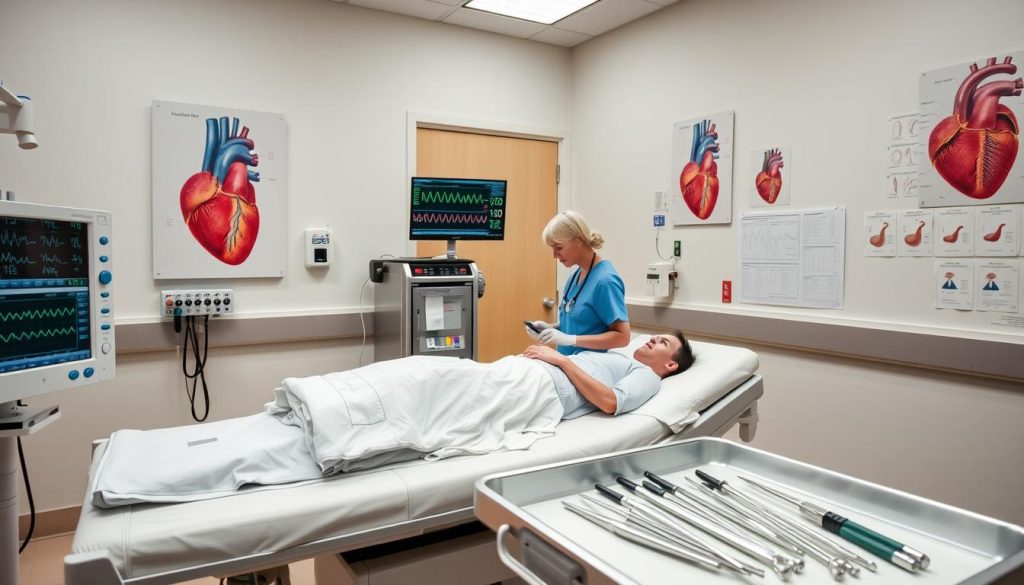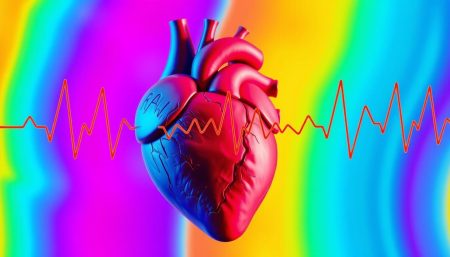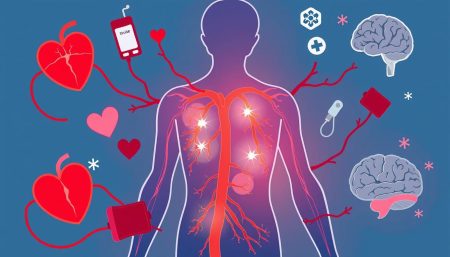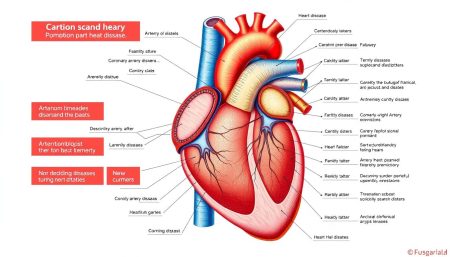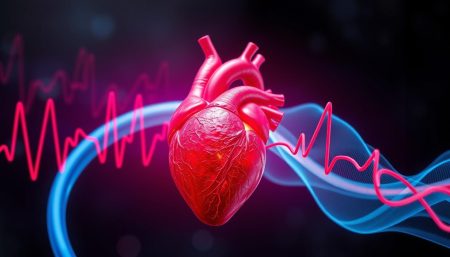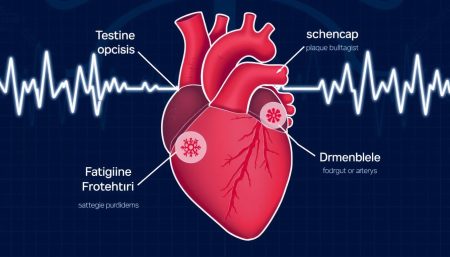Triple bypass surgery is a lifesaving operation for those with severe heart disease. It reroutes blood flow around blocked arteries. This helps restore vital circulation to the heart muscle.
The surgery involves grafting healthy blood vessels to bypass three blocked arteries. Patients face a long recovery but often see an improved quality of life. They also have a lower risk of heart attacks.
Knowing about triple bypass surgery helps patients and their families. It prepares them for the treatment and recovery journey. This guide covers the essential parts of this critical surgery, from before the surgery to long-term lifestyle changes.
What Is Triple Bypass Surgery: Definition and Purpose
Triple bypass surgery is a key cardiac surgery. It’s used when three major arteries to the heart are blocked. This surgery helps patients with severe heart disease by improving blood flow and quality of life.
Understanding Coronary Artery Disease
Coronary artery disease happens when plaque builds up in heart arteries. This buildup narrows the arteries, causing chest pain and heart attack risks. When other treatments fail, CABG is needed.
Why Triple Bypass Surgery Is Performed
Doctors suggest triple bypass surgery for severe blockages in three arteries. It’s critical for those with severe chest pain, heart attacks, or high cardiac risk. The surgery creates new blood paths, easing symptoms and reducing future heart risks.
Different Types of Bypass Surgery
Triple bypass targets three blocked arteries. Other CABG types include:
- Single bypass: Treats one blocked artery
- Double bypass: Addresses two blocked arteries
- Quadruple bypass: Manages four blocked arteries
The choice of surgery depends on the number and location of blockages. All CABG surgeries aim to boost blood flow to the heart, improving function.
Indications and Risk Factors for CABG Surgery
Coronary artery bypass graft (CABG) surgery is a key procedure for severe coronary artery disease. It’s often chosen when other treatments don’t work.
- Chest pain unresponsive to medication
- Blockage in multiple coronary arteries
- Weakened heart muscle
- Severe angina affecting daily life
Risk factors that increase the need for CABG include:
| Risk Factor | Impact on Heart Health |
|---|---|
| Age (65+) | Higher risk of coronary artery disease |
| Family history | Genetic predisposition to heart problems |
| Smoking | Damages blood vessels, increases plaque buildup |
| Diabetes | Accelerates atherosclerosis |
| High blood pressure | Strains heart and arteries |
Early detection and management of these risk factors can help avoid CABG. Regular check-ups and lifestyle changes are key to heart health. They help prevent coronary artery disease from getting worse.
Pre-operative Preparation and Assessment
Before a triple bypass surgery, patients go through a detailed preparation process. This is to make sure they get the best care for their heart. It’s all about getting ready for the surgery.
Medical Evaluations Required
Doctors run many tests to check a patient’s health and heart. These tests include:
- Cardiac stress tests
- Angiograms
- Blood tests
- Chest X-rays
- Electrocardiograms (ECG)
Lifestyle Changes Before Surgery
Patients are told to make some lifestyle changes. These changes help improve their surgery results:
- Quit smoking
- Adopt a heart-healthy diet
- Engage in light exercise as recommended by the doctor
- Manage stress through relaxation techniques
Medication Adjustments
Some medications might need to be changed or stopped before surgery:
- Blood thinners might be discontinued to reduce bleeding risk
- Diabetes medications may require adjustment
- Some supplements and herbal remedies should be avoided
It’s very important to follow all pre-operative instructions. This helps ensure a good surgery and recovery. Patients should talk openly with their healthcare team about any worries or questions.
The Surgery Triple Bypass Procedure Step by Step
Triple bypass surgery is a complex aortocoronary bypass procedure. It’s a life-saving operation. Let’s explore the main stages of this surgery.
Anesthesia Administration
The first step is to put the patient under general anesthesia. This keeps the patient asleep and pain-free. The anesthesiologist watches the patient’s vital signs closely during the surgery.
Surgical Incision and Access
After anesthesia, the surgeon makes a long incision in the chest. This open heart surgery method gives access to the heart. The breastbone is then split to reveal the heart.
Harvesting Blood Vessels
Next, the team takes healthy blood vessels. These grafts usually come from the leg or chest. The surgeon might use arteries, veins, or both, based on the patient’s needs.
Creating the Bypass
With the grafts prepared, the surgeon attaches them to reroute blood flow. This is the core of the aortocoronary bypass procedure. The surgeon stitches one graft end above the blockage and the other below, making a new blood path.
| Bypass Step | Description | Duration |
|---|---|---|
| Anesthesia | Patient is put under | 30 minutes |
| Incision | Chest is opened | 45 minutes |
| Harvesting | Blood vessels collected | 60 minutes |
| Bypass Creation | Grafts attached | 2-3 hours |
Role of the Heart-Lung Machine During Surgery
The heart-lung machine is key in triple bypass surgery. It acts like the heart and lungs, letting surgeons work on a stopped heart. This makes complex surgeries possible.
During CABG surgery, the patient is hooked up to the heart-lung machine. Tubes are put into the heart and big blood vessels. The machine pumps blood, skipping the heart and lungs.
Technicians watch the heart-lung machine closely during surgery. They check blood flow, temperature, and oxygen levels. This is key for keeping the patient safe.
But, the heart-lung machine has some risks. These include:
- Blood clots
- Inflammation
- Organ damage
Doctors try to lessen these risks. They use blood thinners and filters to stop clots. They also control how long the patient is on the machine.
The heart-lung machine has changed cardiac surgery a lot. It lets surgeons do complex surgeries like triple bypass safely. As technology gets better, so do heart-lung machines, improving patient results in CABG and other surgeries.
Immediate Post-operative Care in ICU
After coronary artery bypass graft surgery, patients get special care in the Intensive Care Unit (ICU). This important time helps them recover well from the surgery.
First 24 Hours After Surgery
In the first hours after surgery, patients slowly wake up from anesthesia. Nurses watch over them closely, helping with breathing exercises and giving comfort. Patients might feel a bit foggy and uncomfortable, which is okay.
Monitoring Vital Signs
ICU staff watch vital signs closely after the bypass surgery. They track:
- Heart rate and rhythm
- Blood pressure
- Oxygen saturation
- Body temperature
- Urine output
Pain Management Protocol
Managing pain is key for recovery. The pain plan usually includes:
| Method | Description |
|---|---|
| Intravenous medications | Given directly into the blood for fast relief |
| Patient-controlled analgesia | Let’s patients give themselves pain meds safely |
| Oral pain relievers | Started when patients can take them by mouth |
Nurses check pain levels often using special scales. They adjust meds as needed to keep patients comfortable and help them heal.
Recovery Timeline and Milestones
After a triple bypass surgery, patients start a long recovery journey. This journey can last weeks to months. Each person’s recovery pace is different, but there are key milestones to look out for.
In the first days after surgery, patients often move from the ICU to a regular room. They get rid of chest tubes and catheters. They also start walking short distances with help.
Being discharged from the hospital usually happens within a week. This is a big step forward. At home, patients slowly increase their activity. They follow a plan made by their healthcare team.
| Time Frame | Recovery Milestone |
|---|---|
| 1-2 weeks | Light household activities |
| 4-6 weeks | Driving, office work |
| 6-12 weeks | Return to most normal activities |
| 3-6 months | Full recovery for most patients |
Emotional recovery is just as important. Patients might feel mood swings or depression. Having a strong support system and talking openly with doctors is key.
Keep in mind, every recovery from triple bypass surgery is different. Always listen to your doctor’s advice to get the best results.
Physical Rehabilitation and Exercise Programs
After a cardiothoracic procedure like myocardial revascularization, physical rehabilitation is key. A good exercise program helps patients get stronger and improve their heart function. Let’s look at the stages of recovery after triple bypass surgery.
Early Mobility Exercises
In the first days after surgery, patients start with simple movements. They do deep breathing exercises and gentle leg lifts. These activities help prevent complications and prepare the body for more intense rehab.
Graduated Activity Program
As recovery goes on, patients follow a step-by-step plan to increase activity. They start with short walks and gradually do longer exercises. The goal is to safely improve endurance without overworking the healing heart.
Long-term Exercise Guidelines
For ongoing heart health, patients need to keep up with an exercise routine. This usually includes a mix of cardio and strength training. A typical plan might involve:
- 30 minutes of walking, swimming, or cycling 5 days a week
- Light weight training 2-3 times a week
- Flexibility exercises daily
It’s important to follow the doctor’s advice and go to cardiac rehab sessions. These programs offer supervised exercise and education. They help ensure a safe and effective recovery after myocardial revascularization.
Potential Complications and Risk Management
Cardiac surgery, like aortocoronary bypass, has risks. These surgeries are usually safe, but knowing possible complications is important.
Short-term risks after triple bypass surgery include:
- Infection at incision sites
- Excessive bleeding
- Irregular heartbeat
- Stroke
- Temporary confusion or memory issues
Long-term issues might be graft failure or artery blockages again. Getting good post-operative care helps reduce these risks.
To handle risks, surgical teams follow strict rules. These include:
- Thorough pre-operative screening
- Advanced surgical techniques
- Careful monitoring during and after surgery
- Personalized recovery plans
Patients also have a big role in managing risks. They must follow post-surgery advice, take medicines, and go to check-ups. Eating right and exercising can also help a lot after aortocoronary bypass.
“While complications can occur, the overall success rate of triple bypass surgery is high when performed by experienced cardiac surgeons.”
Knowing about risks and helping with recovery can make cardiac surgery very beneficial. It can greatly improve heart health.
Dietary Modifications After Bypass Surgery
After coronary artery bypass graft (CABG) surgery, eating right is key for recovery and heart health. Patients must follow a heart-healthy diet to aid in healing and prevent future heart problems.
Heart-Healthy Eating Guidelines
A diet low in saturated fats, cholesterol, and sodium is vital for CABG patients. Focus on eating:
- Fruits and vegetables
- Whole grains
- Lean proteins
- Healthy fats like olive oil and avocados
Foods to Avoid
Some foods can raise heart risks or slow recovery after CABG. Patients should limit or avoid:
- Processed meats
- Fried foods
- Sugary drinks and snacks
- High-sodium foods
Meal Planning Strategies
Good meal planning is key for a heart-healthy diet after CABG. Try these tips:
- Prepare meals in advance
- Use herbs and spices instead of salt for flavor
- Include a variety of colorful fruits and vegetables in each meal
- Control portion sizes to maintain a healthy weight
Working with a registered dietitian can help create personalized meal plans after CABG surgery. This ensures patients get the right nutrition for the best recovery and long-term heart health.
| Food Group | Recommended Choices | Choices to Limit |
|---|---|---|
| Proteins | Fish, skinless poultry, legumes | Red meat, processed meats |
| Grains | Whole wheat bread, brown rice, oats | White bread, pastries, sugary cereals |
| Fats | Olive oil, avocado, nuts | Butter, lard, coconut oil |
| Beverages | Water, unsweetened tea, low-fat milk | Soda, alcohol, energy drinks |
Long-term Lifestyle Changes and Management
After triple bypass surgery, patients must make big lifestyle changes. These changes are key for long-term health and avoiding future heart problems.
Managing stress is important for recovery. Patients are advised to try relaxation techniques like deep breathing, meditation, or yoga. These methods help ease heart strain and improve overall health.
Quitting smoking is a must for those who had heart surgery. Smoking harms the heart and can reverse the surgery’s benefits. Support groups and nicotine replacement therapies can help.
Keeping a healthy balance between work and life is vital. Patients should rest and slowly go back to work with their doctor’s okay. This helps manage stress and aids in healing.
- Adhere to prescribed medications
- Attend regular check-ups
- Continue cardiac rehabilitation
Getting used to a new lifestyle can be tough. Patients might feel anxious or depressed. Support from loved ones, friends, and mental health experts is very helpful. Joining support groups lets patients connect with others who’ve gone through similar things. It offers encouragement and useful tips for managing long-term.
Follow-up Care and Medical Monitoring
After a heart bypass operation, ongoing medical care is key for recovery and long-term health. Patients need regular check-ups and monitoring. This ensures proper healing and prevents complications.
Scheduled Check-ups
Your cardiac surgeon will set up a follow-up schedule just for you. These visits usually happen at 2 weeks, 6 weeks, and 3 months after surgery. Your doctor will check on your recovery and answer any questions you have.
Diagnostic Tests
Several tests help keep an eye on your heart health after bypass surgery:
- Electrocardiogram (ECG): Measures heart’s electrical activity
- Echocardiogram: Evaluates heart function and structure
- Stress tests: Assess heart performance during physical activity
- Blood tests: Check cholesterol levels and other markers
Warning Signs to Watch For
It’s important to catch complications early. Call your doctor right away if you notice:
| Symptom | Possible Indication |
|---|---|
| Chest pain or pressure | Heart attack or angina |
| Shortness of breath | Heart failure or fluid buildup |
| Fever above 101°F (38.3°C) | Infection |
| Rapid weight gain | Fluid retention |
By being alert and talking openly with your healthcare team, you can get the best results from your heart bypass operation.
Success Rates and Quality of Life After Surgery
Triple bypass surgery is a complex procedure with high success rates. Over 95% of patients survive and see big improvements in heart function. This method is effective in reducing symptoms and improving life quality.
Patients often see a big drop in chest pain and shortness of breath. Many can go back to work and hobbies a few months after. Following care instructions and making lifestyle changes are key to success.
| Outcome | Percentage |
|---|---|
| Survival rate | 95-98% |
| Symptom reduction | 80-90% |
| Return to work | 70-80% |
| Improved heart function | 85-95% |
Long-term success needs ongoing medical care and heart-healthy habits. Quitting smoking, eating well, and exercising regularly lead to the best results. Most patients say their quality of life greatly improves after this surgery.
Innovations in Cardiac Bypass Surgery
Cardiac surgery has made big strides in recent years. New CABG techniques offer patients less invasive options. This includes minimally invasive and robotic-assisted surgeries, which cut down recovery times for some.
New graft materials and advanced imaging technologies are also improving. These advancements help make surgeries more precise. They lead to better results and shorter hospital stays for many patients.
Research in cardiac care is always moving forward. Scientists are looking into stem cell therapies and new medicines. These could be used alongside traditional CABG procedures in the future.
Even though CABG is a key part of cardiac surgery, these new developments are making it better. As research keeps going, heart patients will have more options. This could mean faster recoveries and a better quality of life for them.
FAQ
Q: What is triple bypass surgery?
A: Triple bypass surgery is a heart procedure. It helps blood flow to the heart by bypassing blocked arteries. Grafts from other body parts are used to create new paths.
Q: Who needs triple bypass surgery?
A: It’s for those with severe heart disease. Patients with big blockages in three main arteries are often candidates. They might also have chest pain or a high risk of heart attack.
Q: How long does triple bypass surgery take?
A: The surgery can last from 3 to 6 hours. It depends on the patient’s health and the complexity of the blockages.
Q: What is the recovery time for triple bypass surgery?
A: Recovery time varies, but most stay in the hospital for a week. It can take 6 to 12 weeks to fully recover. Patients can start with light activities in 4 to 6 weeks.
Q: What are the risks associated with triple bypass surgery?
A: Risks include bleeding, infection, and heart problems. Death is rare but possible. Your surgeon will talk about these risks before the surgery.
Q: How is the heart-lung machine used during triple bypass surgery?
A: The heart-lung machine is key during surgery. It takes over the heart and lungs’ functions. This lets surgeons work on a stopped heart.
Q: What lifestyle changes are necessary after triple bypass surgery?
A: Patients need to eat healthy, quit smoking, and manage stress. They should also exercise regularly and maintain a healthy weight.
Q: How long do bypass grafts typically last?
A: Grafts can last 10-15 years on average. Arterial grafts can last up to 20 years. Lifestyle and medication are important for graft longevity.
Q: Can triple bypass surgery be performed minimally invasively?
A: Yes, some surgeries are done with smaller incisions. But not all patients qualify. The choice depends on the patient’s condition and the surgeon’s skill.
Q: What is the success rate of triple bypass surgery?
A: The success rate is over 95%. Most patients feel better after the surgery. Success also depends on following post-operative care and lifestyle changes.












